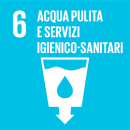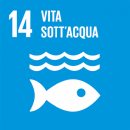Giorgi, M. The hydroelectric rent in competitive electricity markets.
- 03, 02, 2021
Matteo Giorgi
The hydroelectric rent in competitive electricity markets.
Rel. Alberto Cavaliere, Francesco Sotti. Università degli Studi di Pavia, Dipartimento di Scienze Economiche e Aziendali, Corso di Laurea magistrale in Economics Finance and International Integration, A.A. 2019/2020.







Abstract
The economics of electricity is a wide and complicated topic, which has faced many evolutions across time and is still constantly upgrading. Starting from a thorough description of its various scopes and derivations, throughout an overview of the actors and the functioning of electricity systems and power markets, the discussion moves to accurately outline how water movement is exploited to generate electric energy, the features of hydroelectric industry and its profitability. The economic rent which hydropower sector benefits, relied on low production costs and flexible generation patterns, is indeed a relevant issue for governments, that are tempted to capture the highest possible share of this surplus through fees, arguing that it is obtained using a State-owned good, i.e. water. Although, an excessive tax burden may prevent the incentives for hydroelectric companies to carry out socially desirable investments, such as measures to internalize the negative impacts that facilities yield to local communities, or to enhance their cost-effectiveness and their energy efficiency. This matter has been exacerbated in the last decades by the advent of liberalization, that have gradually replaced national monopolies in the production stage of electricity with competitive markets. Regulated prices, leading to a stable and constant value of the rent, have thus been driven out by market prices, that vary according to negotiations between buyers and sellers and yield the rent’s level to fluctuate continuously. Hence, the identification of a proper tax system to hit the rent has changed and complicated significantly, altering even the objectives that policymakers shall pursue through its introduction (fitting the new market frameworks and achieving environmental protection). A review of the existent literature is provided with an update of the analysed national cases to examine further evolutions, aiming to detect the optimal tax scheme to levy these excessive profits, which could yield the most efficient redistribution shares to the involved parties. Accordingly, evidences support a resource rent tax (RRT) mechanism, as it is shown to be the most proper one in order to reduce the trade-off between rent seizing for authorities and investments’ preservation for firms.
Parole Chiave
Tutela ambientale, requisiti ecologici, misure di mitigazione ambientale (investimenti ambientali), obiettivi EU 2030 (energie rinnovabili), Water Framework Directive, impatti ambientali negativi, protezione e ristoro della biodiversità.
